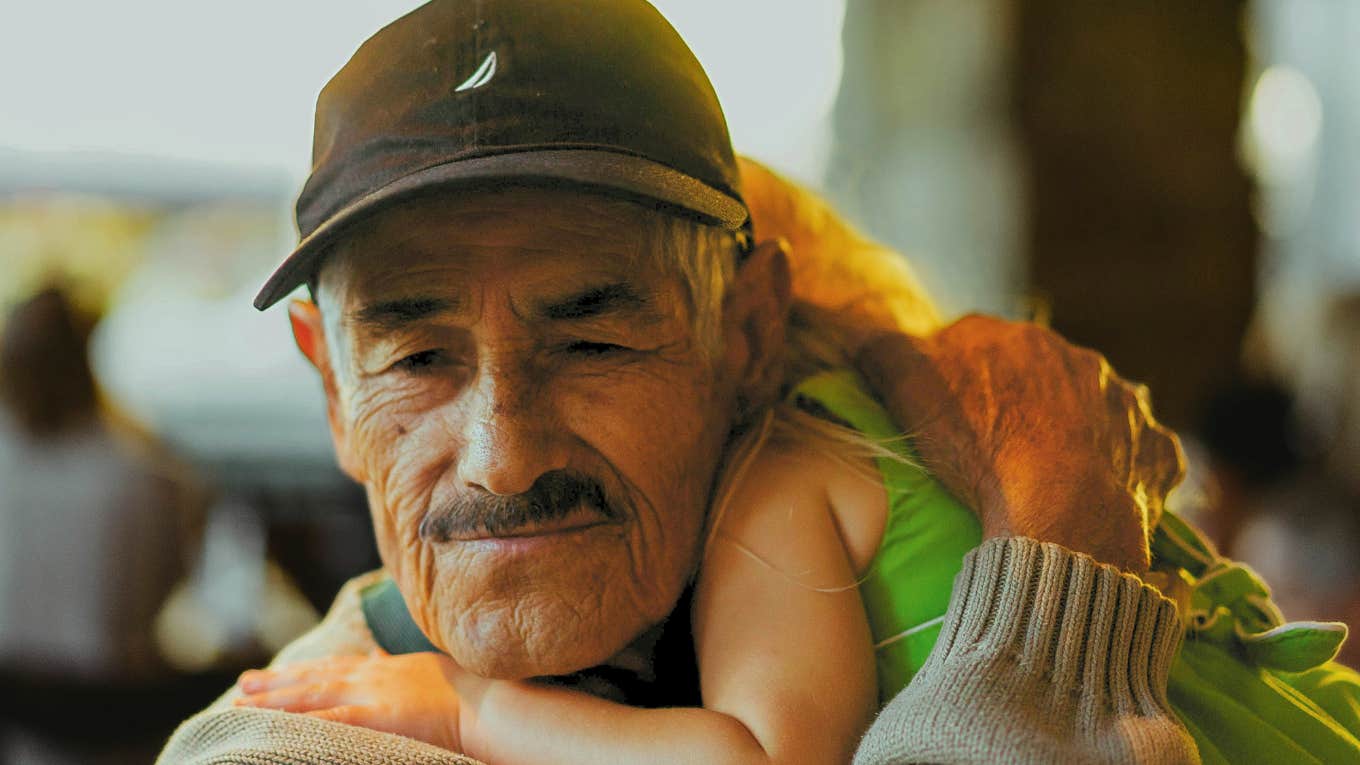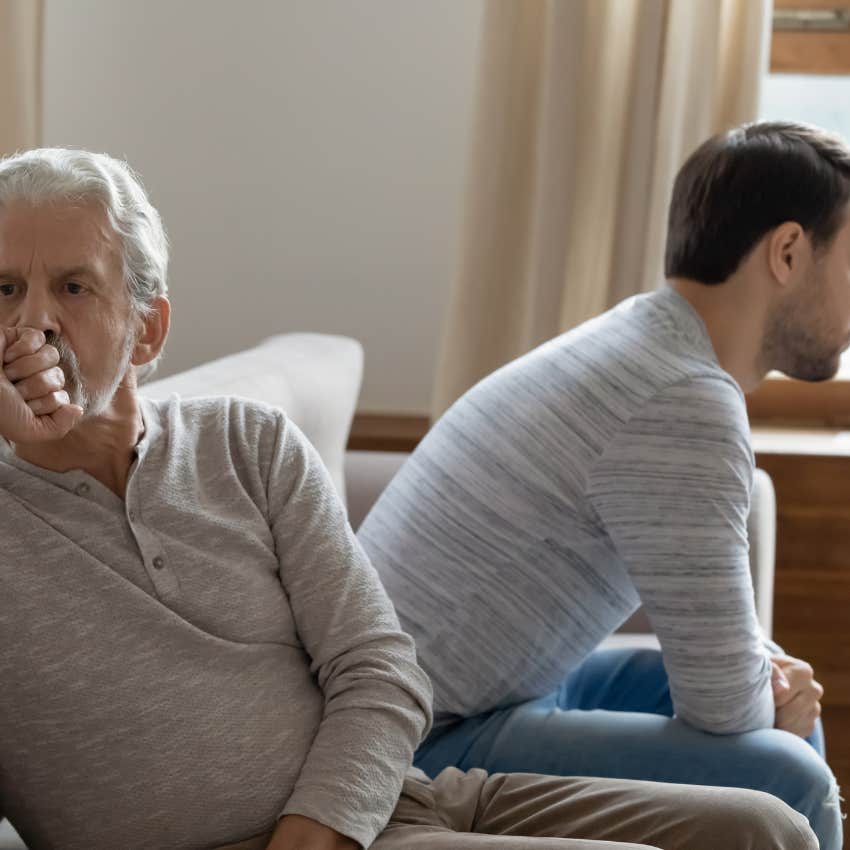Why Even Terrible Parents Often Make Surprisingly Good Grandparents, Says Clinical Psychologist
They may have fumbled as moms or dads but when it comes to grandkids, something shifts.
 OC Gonzalez | Unsplash
OC Gonzalez | Unsplash The fear that your parents’ comments will seem to your kids the same way they seemed to you is usually unfounded. Many adult children of dysfunctional families don’t want their kids to interact with their parents because they fear that what was done to them as a child will be done to their kids. (And sometimes, people don’t want their kids to interact with their partner’s family because of what happened to their partner as a child.)
Fortunately, this is generally an unfounded fear. You certainly don’t have to interact with parents who make you feel like garbage, but if your reasoning for not seeing them is based on the potential negative impact on your kids, this may not be as big of an issue as you think. Why?
Because terrible parents often make surprisingly good grandparents.
I have worked as a therapist for over a dozen years, and in that time, nobody has ever talked to me about how traumatized or hurt they were by a grandparent UNLESS that grandparent was their primary caregiver or lived in the primary home. Otherwise, even in cases where a client felt their grandparent was a real jerk, this merits barely any time at all in therapy. Any discussion is generally focused on the grandparents’ impact on the client’s parent to understand their parent better.
If you remember your interactions with grandparents, you probably fall into one of two buckets: you loved them, or you didn’t love them. So, either the grandparent was a source of love and comfort, or they were someone you never really thought about. Your child will most likely be similar: either they will love your parent, or they will consider them kind of weird and a non-entity.
Most people in this situation have a parent who treated them badly when they were a kid, and now they are scared that the parent will replicate this with their grandchild. Most people who have physically or emotionally abused their kids will not do this with a grandchild. (If your parent abused you, you likely fall into the category I will discuss later of people who are too upset by their parents to see them.)
 fizkes / Shutterstock
fizkes / Shutterstock
The same passive-aggressive comments or aggrieved tone that your parent used to use with you would likely not even be understood by your child, or would just irritate them. Your kid is not trapped with your parent forever, like you were, so they likely would not see their grandparents’ strange or annoying behaviors as threatening, but just as strange and annoying.
And it is also highly unlikely that your parent would use that tone or make those remarks to your child anyway. (They are much likelier to just keep acting that way toward you, in front of your child, if anything.)
Certainly, if your dysfunctional parent struggles with addiction, depression, anxiety, PTSD, hoarding, or a personality disorder, don’t leave them with your child alone for extended periods, or maybe ever, based on the situation.
But if your parent, or in-law, if that’s what is relevant in your case, is not yelling and acting crazy in front of your kid when you are all spending time together, but rather just being intrusive and irritating and strange, then they are likely going to have approximately zero impact on your kid. (Note that if they do yell and act crazy, you can always leave and know that you tried to give your child access to their grandparent and vice versa.)
At worst, a trip to see your dysfunctional parents/in-laws would be like your child going to see a Weird Person Show.
At best, your bad parent could turn into a great grandparent, and although they likely won’t admit it, some of this motivation may come from tacit acknowledgement that they messed up with you.
Parents with personality disorders like narcissism and Borderline Personality Disorder are least likely to admit they messed up with you (although some parents with BPD will make a great show of regretting everything they ever did wrong and saying they are a terrible person…. until you agree with them, when they will flip and blame you.)
Now, let’s turn to the category of people who are too upset by their parents to see them. If your parent made your life very hard as a child and then does not apologize or change, but rather continues to make your life difficult as an adult … then you are well within your rights not to see them.
This means that your kids may not see them, or else you may want your spouse to visit with the kids but without you, or you may only see them very rarely and briefly with the kids, or whatever else you decide. You are certainly allowed to have whatever level of contact you want to protect your mental health.
This is not to encourage you to spend more time with parents who make you feel terrible about yourself, anxious, angry, or bitter.
It is to reassure you that IF you have a desire to have your kids know your grandparents, (a) your parents will likely behave better with the grandkids than they did with you, and more importantly, (b) your kids will perceive their grandparents’ craziness as far, far, less threatening and dangerous than you did as a kid, because their time with them is so limited and their grandparents do not have any control over your kids’ lives.
For example, if you grew up with constant fighting and chaos in your house, you may have an anxiety disorder now from the unrelenting stress. But if you visit your parents with your kids, and they hear Grandma yelling at Grandpa, all they will likely think is that Grandma is rude.
They will not feel trapped and scared, and alone as you did in the same scenario at their age. If the fear of your children being traumatized is what’s stopping you from visiting your parents, then you can perhaps reconsider after reading this post.
However, if you know you will have a panic attack when exposed to your parents acting crazy because it triggers all your childhood memories of the same behavior, then certainly tell your parents that you cannot visit until this behavior stops, or if you’ve told them and they keep doing it, make your own choices about how much time you want to spend there, if any, to protect yourself.
I emphasize that the protection is for yourself, not your kids, since, likely, your kids will just view it as a boring and annoying way to spend a day or, in the best case, will even not notice it but develop some sort of positive relationships with your parents.
Again, your mental health is not less important than that of your kids, so if you are emotionally wrecked by seeing them, perhaps don’t do it at least until you can work with a therapist who can support you and work with you on developing coping strategies.
Think deeply about this post if it resonated with you. Perhaps you can think differently about your parents’ impact on your kids, on you, or both.
Dr. Samantha Rodman Whiten, aka Dr. Psych Mom, is a clinical psychologist in private practice and the founder of DrPsychMom. She works with adults and couples in her group practice, Best Life Behavioral Health.

